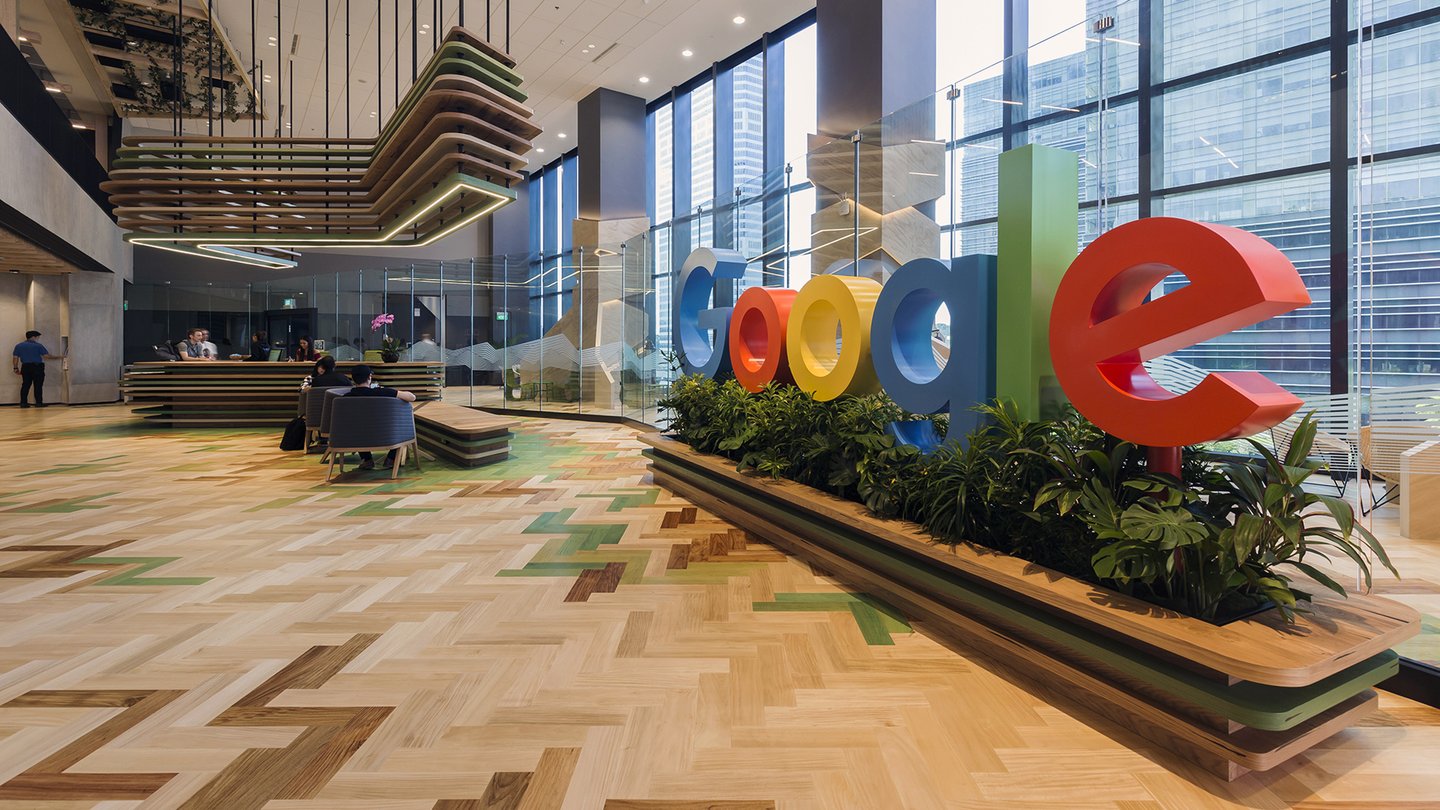US Department of Justice files antitrust lawsuit against Google
The DOJ and 11 states say the tech giant abuses its 'monopoly power' to dominate the search and advertising markets.

The US Department of Justice, along with 11 US states, has filed an antitrust lawsuit against Google, saying that the tech giant "maintained and abused its monopoly power in general search services through anticompetitive and exclusionary distribution agreements that lock up the preset default positions for search access points on browsers, mobile devices, computers, and other devices."
"Two decades ago, Google became the darling of Silicon Valley as a scrappy startup with an innovative way to search the emerging internet. That Google is long gone," the lawsuit states (via NPR). "For many years, Google has used anticompetitive tactics to maintain and extend its monopolies in the markets for general search services, search advertising, and general search text advertising—the cornerstones of its empire.
"Absent a court order, Google will continue executing its anticompetitive strategy, crippling the competitive process, reducing consumer choice, and stifling innovation … For the sake of American consumers, advertisers, and all companies now reliant on the internet economy, the time has come to stop Google’s anticompetitive conduct and restore competition."
US Attorney General William Barr said in a statement that the Antitrust Division of the Department of Justice has spent the past 16 months collecting evidence showing that Google does not compete on its merits, but instead uses its monopoly powers and profit to dominate online search functionality. Other search engines still exist, but under current circumstances, "no one can feasibly challenge Google's dominance in search and search advertising," Barr said.
Interestingly, Barr referenced the DOJ's 1998 lawsuit against Microsoft as "paving the way for a new wave of innovative tech companies," including Google—although that case was ultimately settled out of court, and not to the satisfaction of everyone. UNC School of Law professor Andrew Chin, for instance, wrote that the settlement "created a special antitrust immunity to license Windows and other 'platform software' under contractual terms that destroy freedom of competition."
Nonetheless, Barr said that the settlement resulted in a more competitive environment that opened the door to the creation and growth of Google. Now that it's the dominant player in the market, however, it has "resorted to the same anticompetitive playbook" as Microsoft.
"If we let Google continue its anticompetitive ways, we will lose the next wave of innovators and Americans may never get to benefit from the 'next Google.' The time has come to restore competition to this vital industry," Barr said.
The biggest gaming news, reviews and hardware deals
Keep up to date with the most important stories and the best deals, as picked by the PC Gamer team.
Google, unsurprisingly, described the lawsuit as "deeply flawed," saying in a blog post that people use Google for web searches "because they choose to, not because they're forced to."
"This lawsuit would do nothing to help consumers. To the contrary, it would artificially prop up lower-quality search alternatives, raise phone prices, and make it harder for people to get the search services they want to use," Google senior vice president of global affairs Kent Walker wrote. "Our agreements with Apple and other device makers and carriers are no different from the agreements that many other companies have traditionally used to distribute software. Other search engines, including Microsoft’s Bing, compete with us for these agreements. And our agreements have passed repeated antitrust reviews."
Walker also claimed that Google isn't just competing against other general search engines, but entirely different platforms like Twitter, Kayak, Expedia, Instagram, Pinterest, and Amazon, each of which directly deliver specific types of information and products to users. He also cited the case of Mozilla, which signed a deal with Yahoo in 2014 to make it the default search engine in Firefox. The vast majority of Firefox users in the US opted to manually switch it back to Google, he said, adding that it is also "trivially easy" to switch to non-Google search engines in Google's Chrome browser.
"We understand that with our success comes scrutiny, but we stand by our position. American antitrust law is designed to promote innovation and help consumers, not tilt the playing field in favor of particular competitors or make it harder for people to get the services they want," Walker said. "We’re confident that a court will conclude that this suit doesn’t square with either the facts or the law."
The lawsuit seeks a judgment that Google acted unlawfully to maintain its monopoly, an order preventing from continuing to engage in anticompetitive practices, and—this is the big one—to "enter structural relief as needed to cure any anticompetitive harm," meaning a mandatory sale of some of Google's assets or properties, and possibly a break-up of the company. It may be years before any sort of resolution is reached, however: The lawsuit against Microsoft that Barr referenced began in 1998 and did not reach an agreement to settle until late 2001.

Andy has been gaming on PCs from the very beginning, starting as a youngster with text adventures and primitive action games on a cassette-based TRS80. From there he graduated to the glory days of Sierra Online adventures and Microprose sims, ran a local BBS, learned how to build PCs, and developed a longstanding love of RPGs, immersive sims, and shooters. He began writing videogame news in 2007 for The Escapist and somehow managed to avoid getting fired until 2014, when he joined the storied ranks of PC Gamer. He covers all aspects of the industry, from new game announcements and patch notes to legal disputes, Twitch beefs, esports, and Henry Cavill. Lots of Henry Cavill.

